
Key Learnings From SXSW, We're Finally More Than Freelance
Matthew Mottola
Share this!
Subscribe to Human Cloud Insights
Last week we had the opportunity to speak at SXSW on the panel The Great Reshuffle: Talent Wars and A Gig Economy.
As someone that started in the freelance economy in 2012, back when I didn’t even know it was called freelancing, it is pretty surreal to see organizations like the Department of Defense, Defense Innovation Unit, NavalX, AFWERX, USAREC, AFRL.
Below are my key takeaways.
1: WOW
I know, vague. But my first takeaway, is simply the caliber of leaders that support the growth of our space.
In this case:
- Brig. General Michael Mcginley, Director, DoD’s GigEagle Agile Talent Ecosystem Initiative, Federal Account Executive at Google – Air Force Biography HERE
- Jay Long, Founder of Parlay, National Security Fellow at Truman National National Security Project
- Kris Saling, Acting Director, Innovation Directorate at USAREC, Author – Website HERE
It’s really surreal, as when I started freelancing I lied about what I was doing. I was “going to the coffee shop”, and according to some, “giving up the opportunity of a lifetime” when I didn’t accept a Big 4 position, instead opting to freelance, build a freelance platform, then join Gigster.
Now our industry is big enough to be at SXSW, with multiple freelance related talks/panels, attract leaders as impressive as Kris, Mike, and Jay.
And if you check out our Podcast, you’ll see more impressive logos and leaders moving this industry forward.
2: “Is it new, or new to you”.
This quote won’t stop leaving my head. Michael Mcginley first said it in our prep call, and it really struck a chord.
It struck a chord for three reasons.
- We are still, and might always be, in the awareness mode (and that’s okay).
- But…since we might always be in the awareness mode, how do we not drown people with all that’s happened, and all that’s quickly changing in real time?
- This is where, I think our industry is uniquely challenged, since freelance work is something that’s always been around, yet has never been fully understood. Since the ‘50’s we’ve had external talent, then agencies, consultancies, contingent talent, and a staffing and VMS/MSP ecosystem is already firmly in place. Now we see new terms, and will see newer terms, thus how do we stay simple to understand, yet differentiated? (see point 4)
3: We can’t lose the big picture
Jay Long talked on the concept of smaller teams, larger impact. Instagram was sold to Facebook for $1 billion with 13 employees.
It took me to this chart.
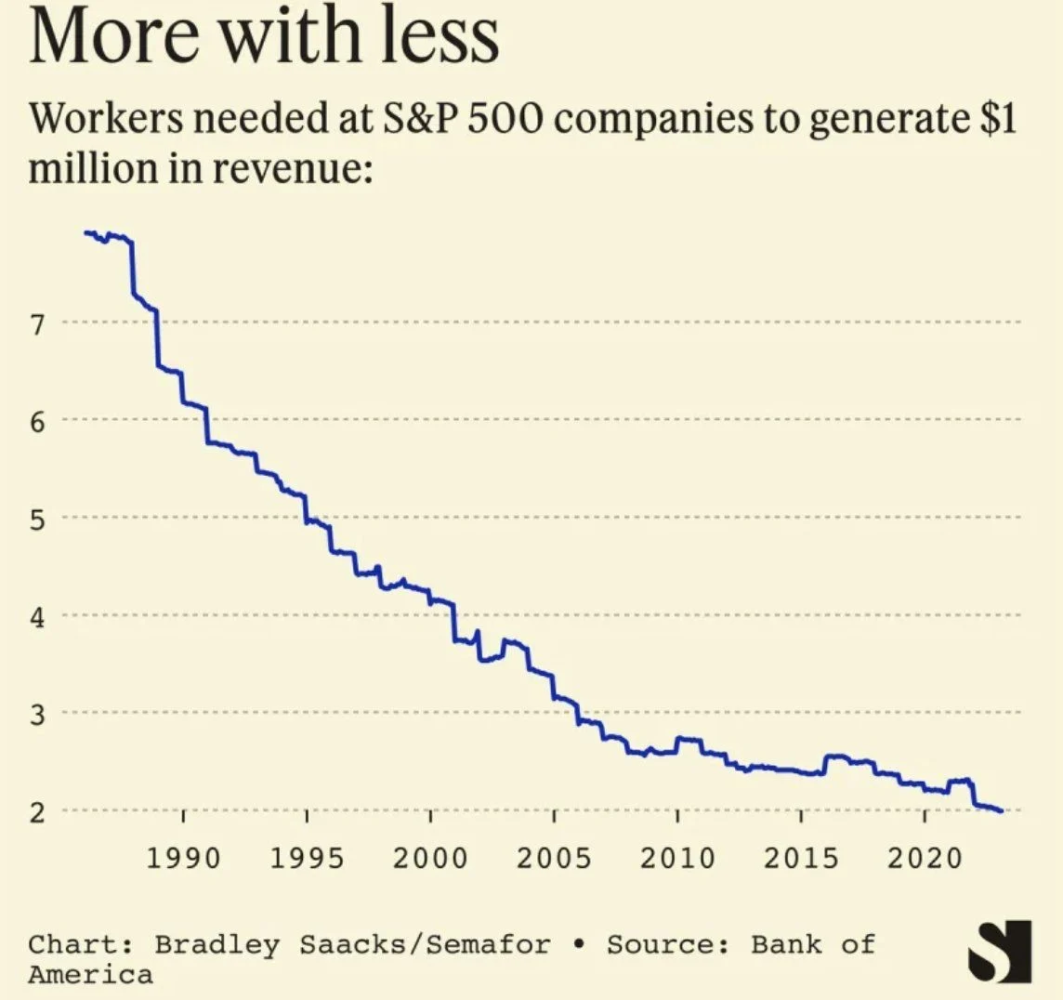
Along with Gumroad, making $11 million in annualized revenue in 2021, while growing 85% year-over-year, and no full time employees.
This is nuts…and so much more than freelance. In fact, it’s why our Industry Landscapeis adding 3-6 new companies a day, and currently have 9 different segments under what we believe should be considered the freelance economy.
We can’t lose sight that while the freelance economy is a “talent” industry, we’re also a massive technology disruption, with implications far beyond traditional talent.
4: Definitions are important, but possibly not that important
I’ll be blunt, if you asked me 5 years ago about the word ‘Gig’, I’d say we’ll finally stop hearing the word or our industry would be thrown in the dustbin. At the time, Enterprise leaders kept using it, yet people would get confused if we were talking about Uber or knowledge work, conflating the 800+ talent platforms that enable access to insanely skilled freelancers across tech, consulting, marketing, etc with ride sharing or food delivery.
Yet I was wrong. The word Gig is still in use, it’s being used for net new initiatives, and once talked out, leaders get it.
Thus as any good product person does, I have to give up my word police badge, and accept that gig might be enough to open the door. To take it once step further, I think we should all use whatever word the client wants to use.
*Sidenote…
Typically once we start talking, instead of gig we really around words like:
- Flexible
- Elastic
- Specialized
And our definition conundrum brings up two extremely important sub points.
- Our disruption is significant enough that words aren’t blockers, rather speed bumps
- We might never have agreed language, and that’s okay, especially as the industry increasingly fragments across new segments and specialized segments, so long as we can have a set of patterns and themes we agree on
One last point…we’re also guilty as we use the term Human Cloud. The reason for us, is that while terms are fluid, the disruption lies in blending the best in humanity with the best in technology, i.e. humans blending with the cloud, and the freelance economy is one application of the Human Cloud. It’s also why our logo is half of a cloud, with the other half being whatever application you’re using.
5: Thinking strategically should be the goal
Our industry has such incredible wins. In the Human Cloud book, we highlight how a motorcycle manufacturer built their signature mobile experience through a 30+ freelancer network that spanned across the globe. This is incredible.
On the podcast we’ve had Enterprise guests that have used the freelance economy for everything from assembling SWAT teams across product, marketing, and operations, to custom airplane graphics in under a week.
Yet how do we define these incredibly disruptive applications, and avoid being a transactional, race to the bottom, low value solution?
I think…
From a company perspective at least, I recommend we break freelance adoption into 3 Horizon’s (I explain more in my latest Forbes post):
- Horizon 1: Companies treat Talent Platforms as an approved vendor within their existing workflow.
- Horizon 2: Companies create Freelance Programs with a dedicated plan, top down support, and resources to drive compliant adoption across the company.
- Horizon 3: Companies think larger than a sourcing strategy, they embed freelance across their product roadmap, their product experience, or their service delivery.
With this, we can now have a shared north star, in getting every company level two, then a sizeable amount of Horizon 3’s.
6: Let’s pat ourselves on the back
Leaders, this is cool. Last September we were in Saudi Arabia with Khibraty, keynoting at one of their largest E-Commerce conferences, and helping two of their government organizations think strategically about freelance.
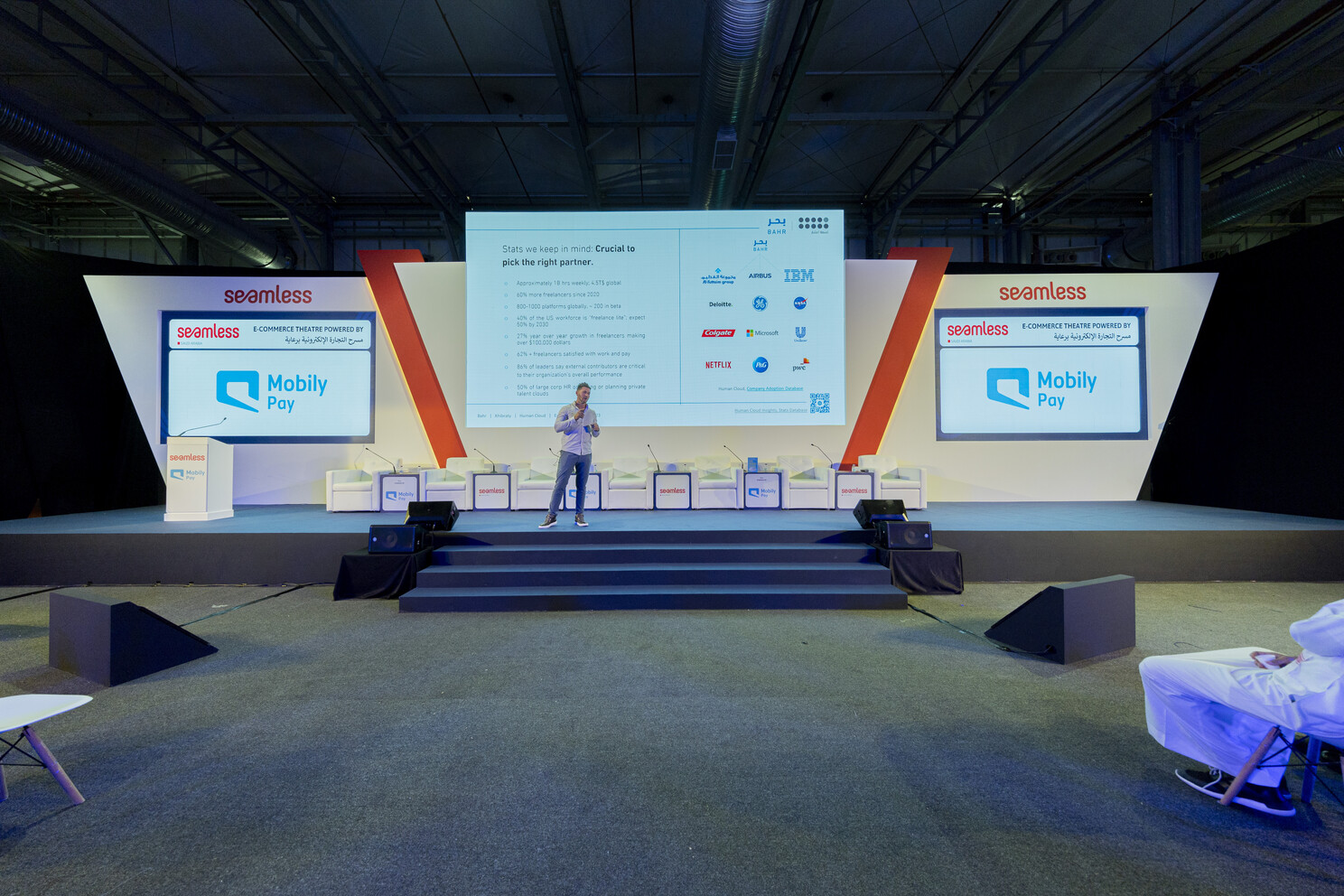
That was nuts. Now our own US DOD and government is catching up. And in typical American fashion, it feels like there’s 5+ innovative organizations that we’re talking with over the next 3 weeks.
In Conclusion: Let’s Connect, Collaborate, And Create a 1+1 = 10 Future Of Work
By this point you can tell I’m passionate, and I know you’re passionate if you’ve made it this far.
So what can YOU do?
- If you’re an Enterprise leader, think strategically, don’t pin freelancers or freelance platforms as just another staffing solution. Instead, use the 3 Horizon Framework to unlock innovation, efficiency, and operational excellence.
- If you’re a Platform leader, double down on what makes you unique, double down on expanding your client relationships, and collaborate with the entire space rather than seeing your peers as competitive. Also use our Trend Tracker Database to prioritize your investments, specifically around sales, marketing, product, and leadership.
- If you’re an Entrepreneur, use our Industry Landscapeto position yourself, identify your unique differentiation, and plan out your go to market.
- If you’re an investor, take a chance, don’t get stuck in tech multiples, and prioritize the stickiness and sustainability of a freelance model over the sexy AI and tbd tech. If you need help with due diligence, use our Industry Landscape and Trend Tracker Database.
Most importantly for all of us, do not accept the legacy debt that comes from traditional work. We’re not building just widgets in factories anymore. We’re not just domestic, we’re all in a global first world. And most important, we’re not constrained by one – one office, one company, one job – we’re now unchained in a way that creates the best win-win between top talent and leadership.
More From Human Cloud
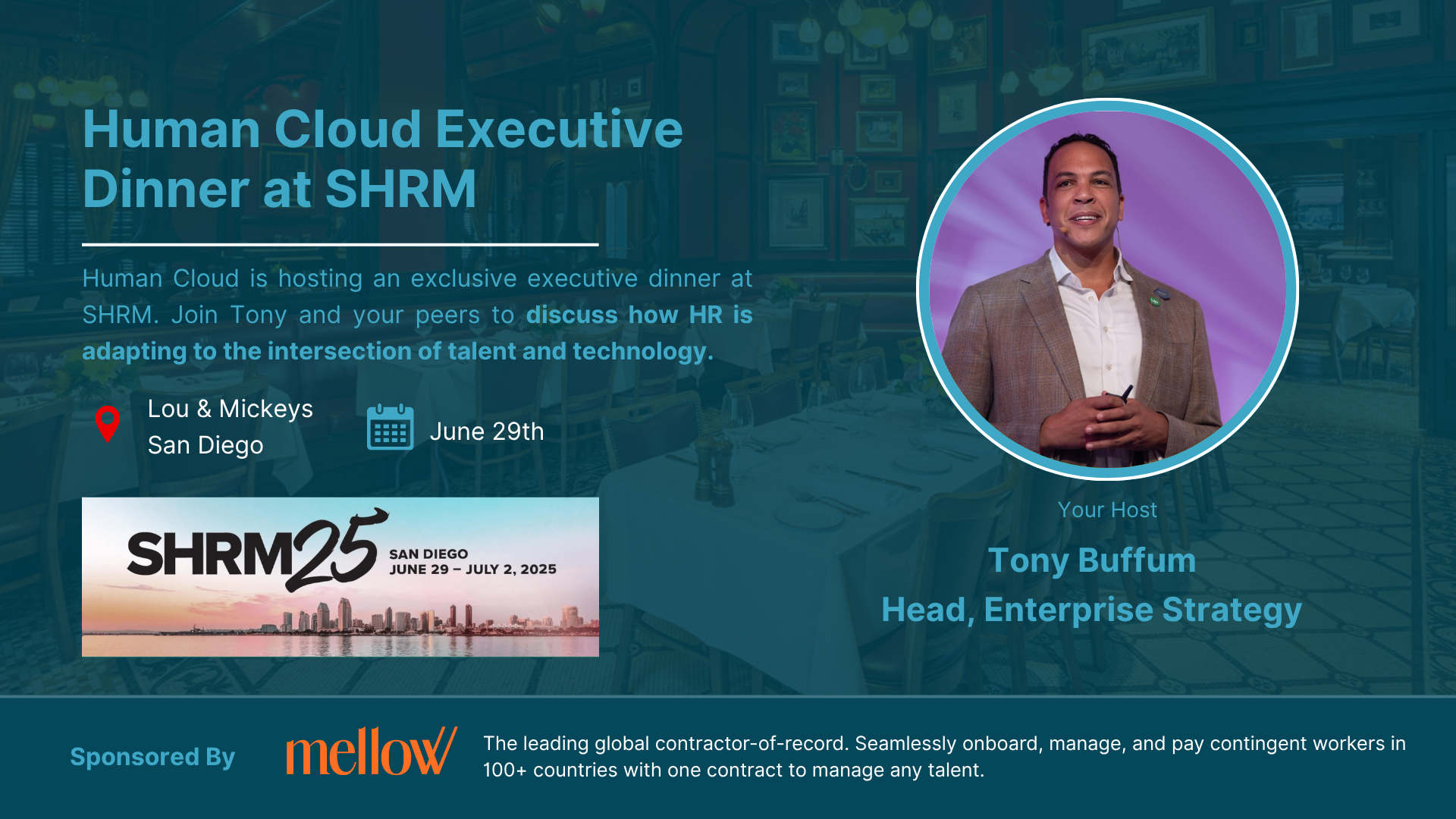
Human Cloud Executive Dinner at SHRM Annual
Join Tony Buffum and your HR executive peers at SHRM for a closed door dinner to discuss HR, TA, and the intersection of talent and technology.
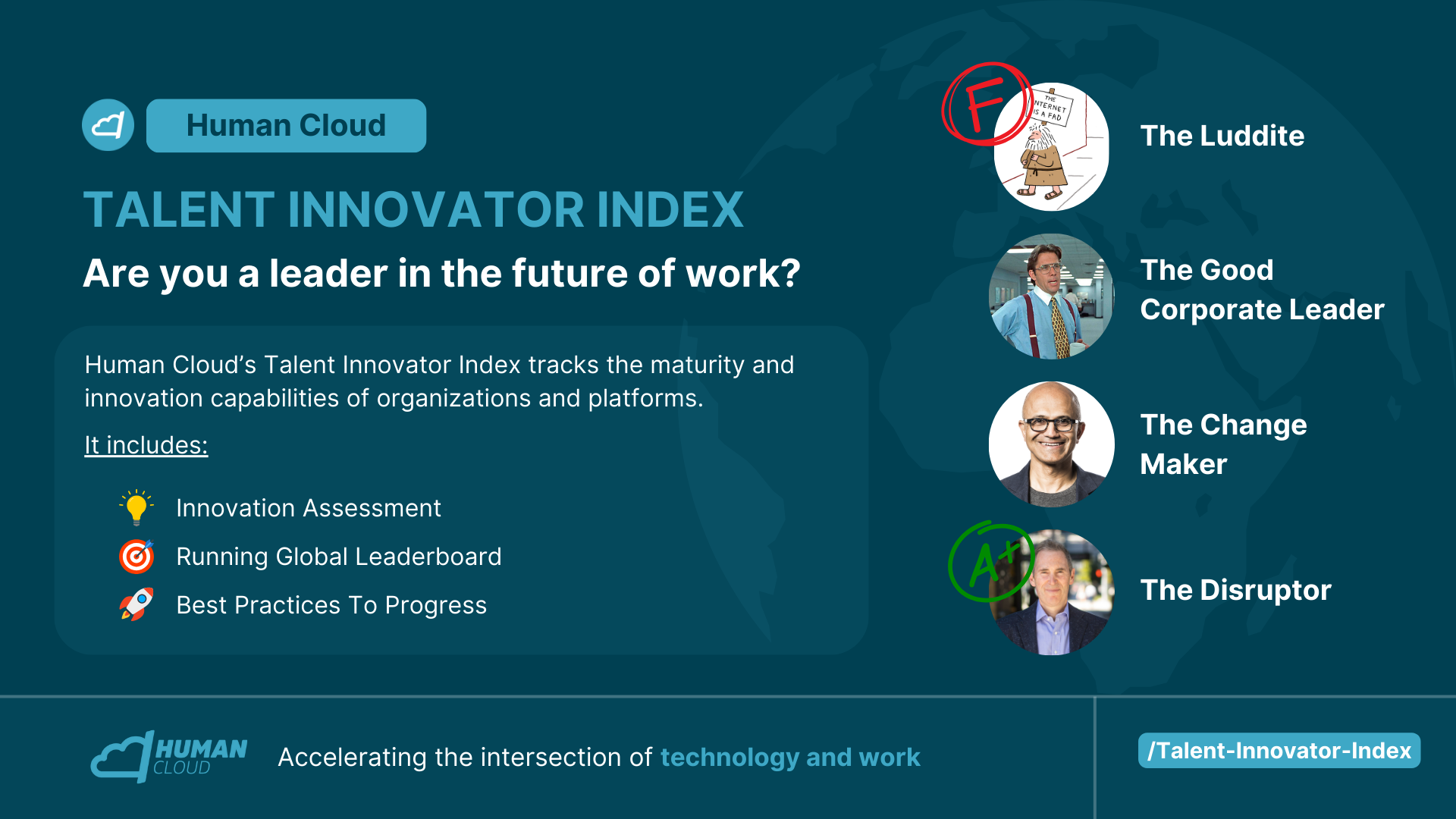
Talent Innovator Index
Talent Innovator Index: Are You A Leader Or Lagger? We developed a quick way to measure you or your clients level of talent innovation. Each leader gets a score, and that score determines which persona you fit in below.
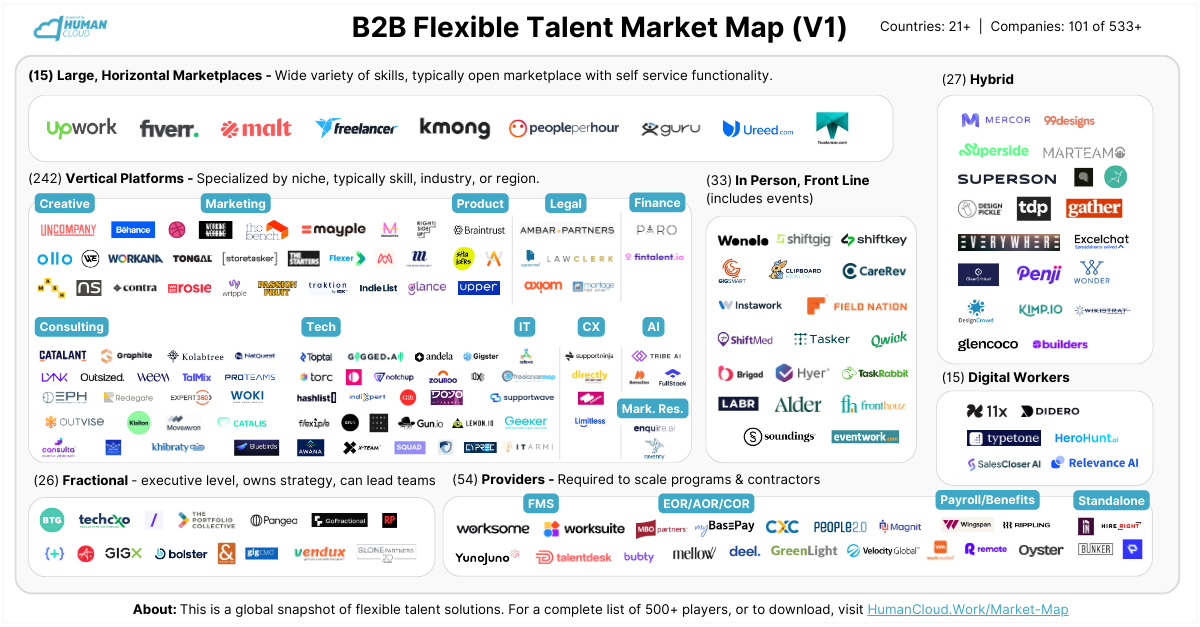
Market Map
Human Cloud’s Market Map is a global snapshot of the B2B Flexible Talent Industry. The Flexible Talent Industry encompasses fractional, freelance, and gig talent platforms, along with the increasing agentic AI applications to digital workers.
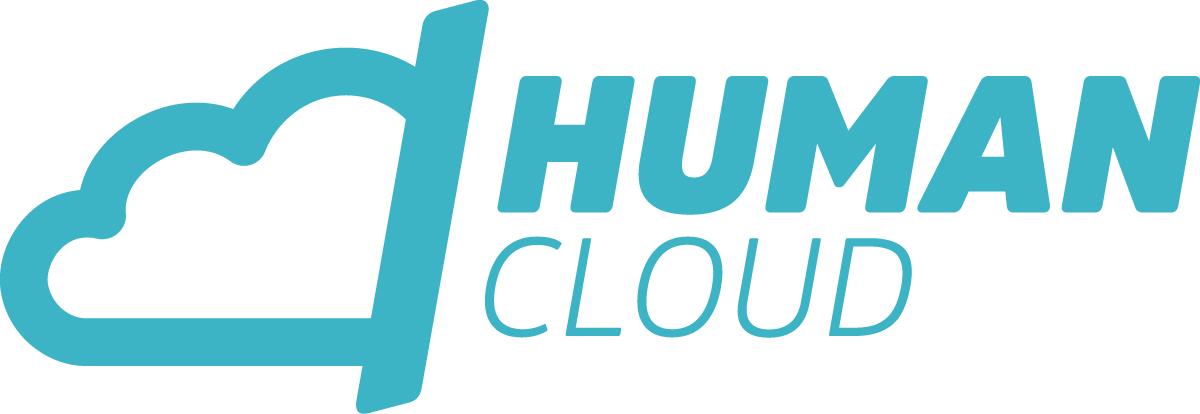
 This is only available to Knowledge Graph subscribers
This is only available to Knowledge Graph subscribers 